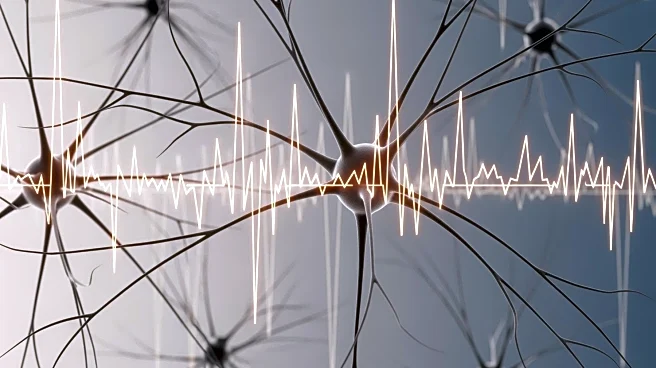What's Happening?
Recent research has demonstrated that neurons exhibit memristor-like behavior, characterized by pinched hysteresis loops. This study involved neurons differentiated from an immortalized human fetal midbrain
neural progenitor cell line. The researchers applied sinusoidal waveforms to neurons and observed the resulting electrophysiological activity. The findings suggest that neurons can express memristive properties, which could have significant implications for understanding brain function and developing new technologies in neuroscience.
Why It's Important?
The discovery of memristor-like behavior in neurons could revolutionize neuroscience by providing new insights into how the brain processes information. Memristors are known for their ability to retain memory without power, suggesting potential applications in developing advanced neural networks and brain-computer interfaces. This research could lead to breakthroughs in treating neurological disorders and enhancing cognitive functions through technology.
What's Next?
Further research is needed to explore the practical applications of these findings in neuroscience and technology. Scientists may investigate how memristive properties in neurons can be harnessed for developing new treatments for brain disorders or creating more efficient neural networks. Collaboration between neuroscientists and technologists could accelerate the development of innovative solutions based on this discovery.
Beyond the Headlines
The ethical implications of using memristor-like properties in neurons for technological advancements should be considered. As research progresses, discussions around privacy, consent, and the potential for misuse of brain-computer interfaces will become increasingly important. Balancing scientific progress with ethical considerations will be crucial in the responsible development of these technologies.











